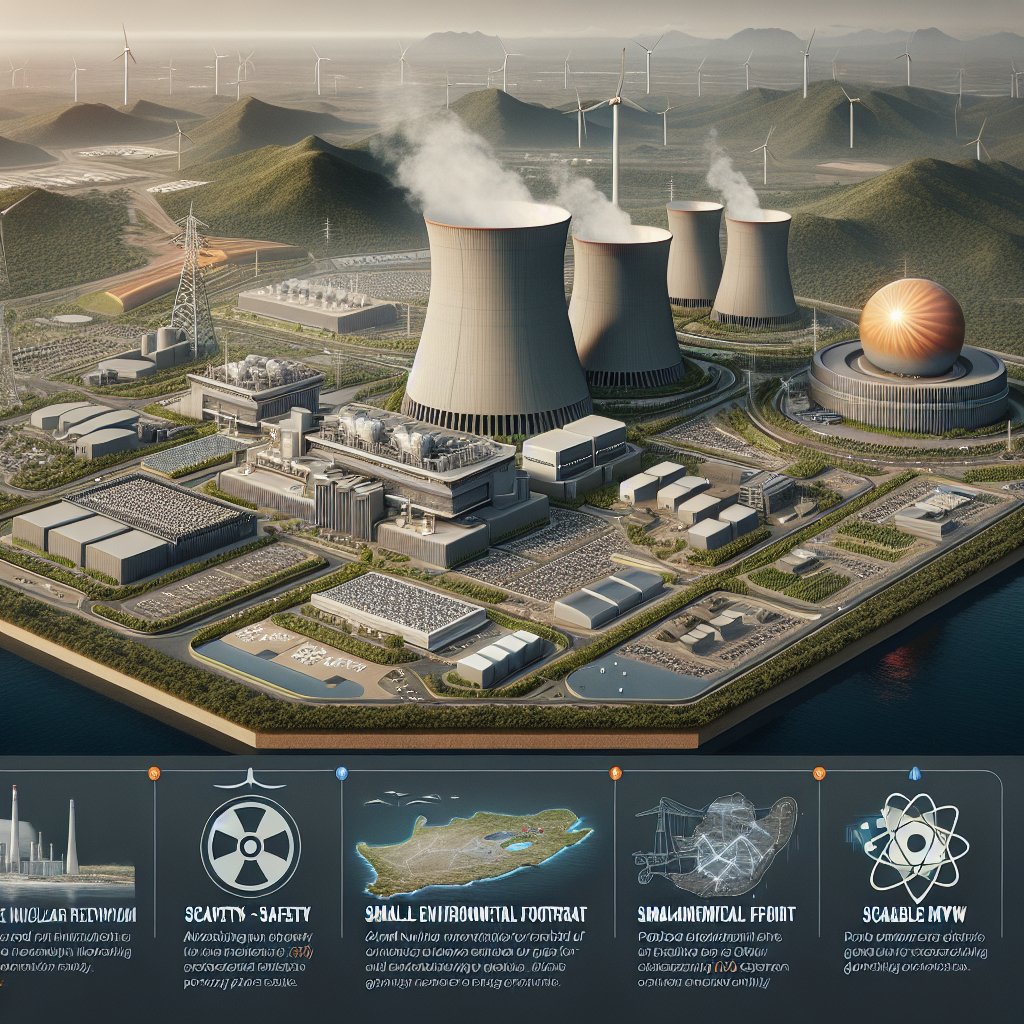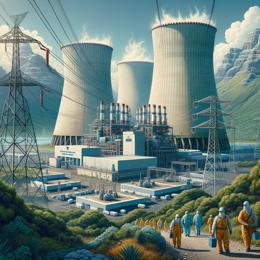Image created by AI
South Africa Prepares to Launch 2,500MW Nuclear Power Station Project
South Africa is taking a giant step towards bolstering its energy security and embracing cleaner power generation with the announcement that Energy and Electricity Minister Kgosientsho Ramokgopa will soon unveil detailed plans for a 2,500-megawatt (MW) nuclear power station. This new large-scale energy initiative is slated to play a crucial role in the country’s electricity supply infrastructure.
Mr. Ramokgopa revealed in an interview with the Sunday Times that the team responsible for the new nuclear station is on the brink of finalizing the procurement process, which is expected to receive the nod from the National Treasury by the end of August 2024. The procurement will adopt a tendering process designed to be fair, equitable, transparent, competitive, and cost-effective.
January 2024 marked a significant milestone when Mr. Ramokgopa gazetted a determination solidifying the government's commitment to the nuclear build initiative. The official document laid out possible executing agents for the project, which could range from state-owned Eskom to public-private partnerships.
The operational expertise of Eskom—South Africa's only current nuclear operator with the Koeberg plant—is likely to be harnessed for running the new station. Recognizing Koeberg's fetching track record with fewer outages and a long-standing operation, it stands as a testament to Eskom's capability in nuclear facility management.
Mr. Ramokgopa did not shy away from touching upon the technical aspirations of the project, hinting at the adoption of the latest nuclear technologies that are quick to deploy, relatively cheaper, and more efficient. Innovations like small-scale nuclear reactors and pebble-bed modular reactors (PBMRs) are on the table, touting enhanced safety, a smaller environmental footprint, and rapid scalability.
Despite the government's termination of Eskom's PBMR program in 2009 due to financial constraints, the technology's development continues internationally. Highlighting the viability of new tech, a South African venture seeks to build a PBMR in the Western Cape with private funding, anticipating significant cost savings per megawatt compared to traditional coal power stations, like the costly Kusile plant.
The intended site for the PBMR network—which aims to generate 1,800MW—is close to the location of Koeberg, and preparations are underway for licensing and feasibility studies. The government's larger 2,500MW nuclear initiative could potentially integrate similar advanced technologies that promise greater energy efficiency and a reduced environmental impact.
With strategic planning and careful execution, the envisioned nuclear project is expected to reinforce South Africa's power grid and reduce its carbon footprint, contributing positively to both national economic growth and global climate change goals.










